The Society is delighted to announce our 2025 Prize Lecture recipients, many of whom will be giving their lecture at IUPS 2025, which will be held in Frankfurt, Germany from 11 – 14 September 2025.
- Annual Review Prize Lecture: Professor Lucilla Poston CBE, King’s College London (UK)
- Bayliss-Starling Prize Lecture: Dr Mootaz Salman BPharm MSc PhD, University of Oxford (UK)
- Hodgkin-Huxley Prize Lecture: Professor Natalia A. Trayanova PhD MS, Johns Hopkins University, Baltimore, Maryland (U.S.)
- Sharpey-Schafer Prize Lecture: Professor Michael J. Welsh MD, University of Iowa, Iowa City, Iowa (U.S.)
- GL Brown Prize Lecture: Professor Damian Bailey PhD, University of South Wales (UK)
- R Jean Banister Prize Lecture: Dr Sylvia Schröder PhD, University of Sussex (UK)
- The Otto Hutter Physiology Teaching Prize and Lecture: Professor Matthew J. Mason PhD, University of Cambridge (UK)
Annual Review Prize Lecture
The Annual Review Prize Lecture is The Society’s premier award. It recognises research that has a wide interest and impact. The recipient of the 2025 Annual Review Prize Lecture is Professor Lucilla Poston. She will be giving this lecture at IUPS 2025.
About the recipient: Professor Lucilla Poston CBE
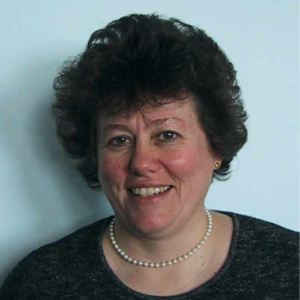
Professor Lucilla Poston CBE is a Professor of Maternal & Fetal Health in the School of Life Course & Population Sciences at King’s College London. Her research spans maternal nutrition, obesity and gestational diabetes with a focus on the short as well as longer term consequences for the health of mother and the child. Approaches include studies in mother-child cohorts and development of pragmatic interventions in pregnancy to improve pregnancy outcome and child health. Her team also interrogate the early life origins of disease through maternal and child electronic health record data linkages.
Professor Poston is President of the International Society for Developmental Origins of Health and Disease, an Honorary Fellow of the Royal College of Obstetricians and Gynaecologists (FRCOG) and was elected Fellow of the Academy of Medical Sciences in 2009. She was appointed NIHR Senior Investigator, Emeritus in 2017, having succeeded twice in open competition. In the same year, Professor Poston was awarded a CBE for services to Women’s Health. In 2024 Professor Poston was listed by Research.com as being one of the top 1000 female scientists in the world, according to the H Index.
Previously Professor Poston was the Tommy’s Chair of Maternal & Fetal Health and the Director of the Tommy’s Maternal & Fetal Research Unit based at St Thomas’ Hospital, and the Head of the School of Life Course & Population Sciences.
Bayliss-Starling Prize Lecture
This is an annually awarded lecture made possible by a generous donation from the Bayliss and Starling Society. It is given to early career as well as established physiologists in alternate years. The recipient of the 2025 Bayliss-Starling Prize Lecture is Dr Mootaz Salman. He will be giving this lecture at IUPS 2025.
About the recipient: Dr Mootaz Salman BPharm MSc PhD
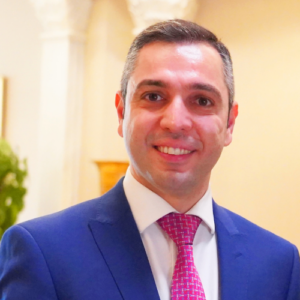
Dr Mootaz Salman is a Group Leader in Cellular Neuroscience and MRC Career Development Fellow at the University of Oxford. He is interested in investigating mechanisms of blood-brain barrier (dys)function in neurodegenerative diseases using patient-derived stem cells, gene editing (CRISPR-Cas 9) and organ-on-a-chip technologies.
After graduating with a Bachelor of Pharmacy with Honours (BPharm(Hons)) from the University of Mosul, Dr Salman studied for Masters and Doctoral degrees at Sheffield Hallam University, investigating the mechanisms of brain water transport where he discovered a novel pharmacological framework for developing drugs to treat traumatic brain injuries and stroke.
Dr Salman held a postdoctoral fellowship at Harvard Medical School and Boston Children’s Hospital where he spent 3 years. During this time, he developed 3D in vitro models to investigate mechanisms involved in improving the effectiveness of therapeutic antibodies for Alzheimer’s disease in collaboration with Biogen.
He moved to Oxford and joined the department of physiology, anatomy, and genetics (DPAG) in late 2020, working on CRISPR/Cas9 genome engineering of human iPSC-derived neurons from Parkinson’s patients to investigate molecular disease mechanisms in collaboration with GSK. In 2021, he was awarded the Leverhulme Research Fellowship that enabled him to start his independent work and he became a Departmental Research Lecturer.
In 2023, he launched his research group at DPAG and Kavli Institute for Nanoscience Discovery, which is primarily funded through his MRC Career Development Fellowship, and supported by other grants including BBSRC Pioneer Award, CONNECT – Horizon2020, and Chief Scientist Office Research Grant.
Dr Salman’s group aims to investigate mechanisms of blood-brain barrier (dys)function in neurodegenerative diseases and brain injuries using patient-derived stem cells. They design and build innovative dynamic 3D multicellular in vitro models to accurately recapitulate the brain and blood-brain barrier function under mechanobiological stimuli, neuroinflammation and other neurodegenerative-relevant conditions.
Hodgkin-Huxley Prize Lecture
This is a prestigious biennial lecture awarded to distinguished physiologists working outside the United Kingdom or Republic of Ireland. The Lecture celebrates the international impact of the work of Alan Hodgkin, Andrew Huxley and Bernard Katz. The recipient of the 2025 Hodgkin-Huxley Prize Lecture is Professor Natalia A. Trayanova. She will be giving this lecture at IUPS 2025.
About the recipient: Professor Natalia A. Trayanova PhD MS
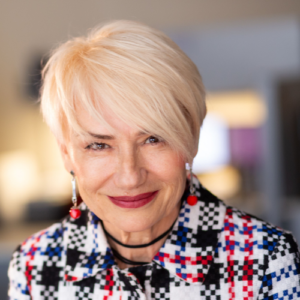
Professor Trayanova holds the inaugural Murray B. Sachs Professorship in the Department of Biomedical Engineering at Johns Hopkins University; she is the first woman to hold an endowed professorship in the Whiting School of Engineering at Johns Hopkins. She is also a Professor of Medicine at the Johns Hopkins School of Medicine, and a Professor of Applied Mathematics and Statistics. She envisioned, created, and directs the Alliance for Cardiovascular Diagnostic and Treatment Innovation, a research enterprise aimed at bringing innovative engineering and AI approaches to cardiovascular health directly into the clinic. She is also the Director for AI Research in Health and Medicine at Johns Hopkins University under the Data Science and AI Institute, where she is responsible for directing efforts across the university in developing and deploying AI applications that advance healthcare delivery and improve patient outcomes. Professor Trayanova also directs the Computational Cardiology Laboratory.
Professor Trayanova’s research has had a major influence on basic and translational biomedical engineering in the field of cardiac arrhythmia mechanisms and therapy. Professor Trayanova is internationally recognised as the leader in multi-scale computational modelling of whole heart electrophysiology and arrhythmias. She pioneered the development and use of clinical-image-based digital twins of patient hearts that faithfully represent the functioning of the patient’s diseased organ. Using her first-of-their-kind personalised heart digital twins and deep learning approaches, Professor Trayanova developed new technologies for accurately predicting risk of cardiac arrest and for the precise delivery of catheter ablation therapies in patients with heart rhythm disorders. For her pioneering work in computational cardiology, she received the NIH Director’s Pioneer Award. She has had an astonishing research productivity, with 450 published papers and book chapters. She has published extensively in the most prestigious journals, such as The Lancet, Nature Cardiovascular Medicine, Nature Communications, Nature BME, Science Advances, Science TM, Nature Reviews Cardiology, eLife, and others.
Professor Trayanova’s technological innovations are also ushering in new personalised approaches to heart health. She developed digital-twin-guided treatment strategies for patients with complex cardiac rhythm disorders. Her seminal papers in Nature Biomedical Engineering in 2018 and 2019 demonstrated, in prospective patient studies, the utility and significant benefit of using personalised digital twins in the interventional management of cardiac arrhythmias. The AI approaches developed by her team are far-reaching and aimed directly at improving patient outcomes and healthcare delivery. She has developed novel multi-modality deep learning approaches to predict personalised risk of sudden cardiac death in patients with different cardiac diseases.
Professor Trayanova is the inventor on numerous patents and patent applications filed world-wide. In recognition of her innovation, she was named Fellow of the National Academy of Inventors in 2020. Professor Trayanova’s work has received world-wide recognition and she is the recipient of numerous honours and awards. In 2019, she was inducted in the Women of Technology International Hall of Fame, an honour conferred only on five women each year from around the world. Also in 2019, she received the Distinguished Scientist Award from the Heart Rhythm Society. This was followed by the Zipes Distinguished Award by the same society in 2020, and by the Gordon Moe Award by the Cardiac Electrophysiology Society in 2023. Professor Trayanova has been named a Fellow of every American and European clinical cardiology society, testifying to her impact in clinical practice. She is also a Fellow of AIMBE, BMES, and IAMBE. She has given over 370 invited lectures, majority of them keynotes or plenary lectures. Professor Trayanova’s work has received widespread media coverage and recognition.
Sharpey-Schafer Prize Lecture
The Sharpey-Schafer Prize Lecture is a triennial lecture given alternately by an established physiologist and an early career physiologist with a particular emphasis on international nominations. The recipient of the 2025 Sharpey-Schafer Lecture is Professor Michael J. Welsh. He will be giving this lecture at IUPS 2025.
About the recipient: Professor Michael J. Welsh MD
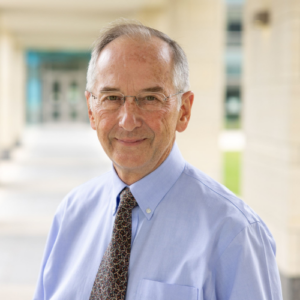
Professor Michael Welsh is the Carver Professor of Internal Medicine and Molecular Physiology and Biophysics at the University of Iowa. He has been an Investigator of the Howard Hughes Medical Institute since 1989. He directs the Pappajohn Biomedical Institute and the Cystic Fibrosis Research Center.
Professor Welsh obtained an MD and completed an internal medicine residency at the University of Iowa. He then trained in pulmonary medicine and research at the University of California, San Francisco and physiology at the University of Texas, Houston.
Professor Welsh and his colleagues discovered that the protein affected in cystic fibrosis is an anion channel, elucidated its functional mechanisms, discovered ways that mutations disrupt function, and showed that mutations can be rescued. This work led directly to development of medicines that target CFTR and are highly effective for most cystic fibrosis patients. To understand disease pathogenesis, he and his collaborators developed cystic fibrosis pigs, the first mammal, other than mice, in which a gene was targeted to generate a disease model.
His clinical activities focused on pulmonary diseases. He has trained many physicians and scientists and received the Distinguished Mentor Award, University of Iowa Carver College of Medicine.
Professor Welsh served as president of the American Society for Clinical Investigation and of the Association of American Physicians. He was elected to the National Academy of Medicine, the American Academy of Arts and Sciences, and the National Academy of Sciences. Recent honours are the Warren Alpert Prize, Kober Medal, Shaw Prize in Life Science and Medicine, and Wiley Prize in Biomedical Sciences.
GL Brown Prize Lecture Series
The GL Brown Prize Lecture Series is aimed at an early career audience to stimulate an interest in physiology and is delivered in two locations across the UK and online. The recipient of the 2025 GL Brown Prize Lecture Series is Professor Damian Bailey PhD.
About the recipient: Professor Damian Bailey PhD
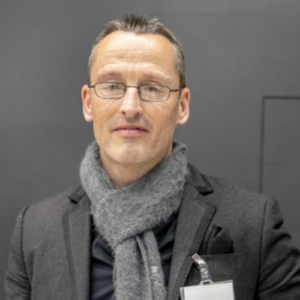
Professor Damian M. Bailey embarked on a PhD in human physiology while working at the British Olympic Medical Centre in collaboration with the University of Oxford. Following postdoctoral training at the Universities of California San Diego, Colorado Health Sciences Center and Heidelberg, he returned to the University of South Wales where he is a Royal Society Wolfson Professor of Physiology leading the Neurovascular Research Laboratory. His research program takes an integrative translational approach to investigate how free radicals and associated reactive oxygen/nitrogen species impact cerebral bioenergetic function across the clinical spectrum of health and disease. He is especially interested in how the human brain adapts to extremes of oxygen and gravity, taking advantage of unique experimental models that range from high-altitude mountaineering, freediving, skydiving, spaceflight and (the first) isolated extracorporeal pulsatile-perfusion system. He has published ~380 papers and is a recipient of numerous prestigious awards and fellowships from the Royal Society, Royal Society of Chemistry, American College of Sports Medicine and The Physiological Society. He is currently Editor-in-Chief of Experimental Physiology and Chair of the Life Sciences Working Group and member of the Human Spaceflight and Exploration Science Advisory Committee to the European Space Agency.
R Jean Banister Prize Lecture Series
The R Jean Banister Prize Lecture Series is awarded to early career physiologists and is delivered in two locations across the UK and online. The 2025 R Jean Banister Prize Lecture Series recipient is Dr Sylvia Schröder.
About the recipient: Dr Sylvia Schröder PhD
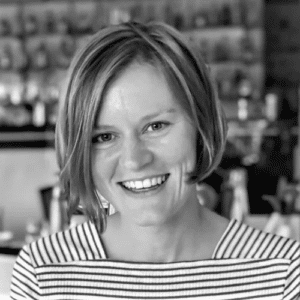
Dr Sylvia Schröder is a Sir Henry Dale Fellow in the field of systems visual neuroscience at the University of Sussex. Using techniques like two-photon imaging and high-density electrophysiology in the mouse model, Sylvia’s lab investigates how behaviour and internal states affect visual processing and the animal’s performance in visually dependent tasks.
As a postdoctoral researcher in the lab of Matteo Carandini and Kenneth Harris at UCL, Dr Schröder pioneered the functional recording from single retinal axons in awake mice and discovered that pre-cortical visual responses in the retina and superior colliculus reflect behavioural state variables such as arousal and locomotion. More recently, Dr Schröder’s lab demonstrated that neurons in the visual colliculus also respond to rewards. It was previously believed that behavioural modulation of visual responses occurred centrally; Dr Schröder’s work fundamentally changes our understanding in that it demonstrates an intricate weaving together of sensory and non-sensory information, much earlier in the visual pathway. This opens exciting new questions concerning how non-sensory information is communicated across the brain to regulate sensation.
Previously during her PhD with Kevan Martin at ETH Zurich, Dr Schröder studied the functional architecture of cat primary visual cortex revealing an unexpected degree of functional heterogeneity within the cortical column, most notable in response to complex natural stimuli. This finding has informed studies on cortical topographic maps, cortical population coding, learning and memory.
The Otto Hutter Physiology Teaching Prize and Lecture
This annual prize recognises excellence and originality in physiology teaching at undergraduate level. Special consideration is given to those nominations that provide evidence of innovation in teaching and learning activities. The recipient of the 2025 Otto Hutter Teaching Prize Lecture is Professor Matthew Mason. He will be giving his lecture at an Education & Teaching meeting in 2025.
About the recipient: Professor Matthew J. Mason PhD
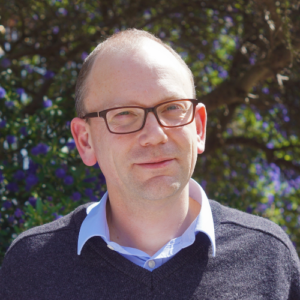
Professor Matthew J. Mason was a veterinary student as an undergraduate, but left to pursue a PhD in Zoology. His studies of the middle ear apparatus began with structure but he became more and more interested in function, ultimately heading to the Department of Physiological Science at UCLA for a postdoctoral position with Peter Narins, during which he measured ear vibrations using laser Doppler interferometry. Professor Mason returned to Cambridge and began teaching, at first for St Catharine’s College and then for the university more widely. The tutorial system in Cambridge has allowed him to sit down with small groups of students every week to discuss physiology, and the conversations he has had over the years has allowed him to develop better ways to explain complex physiological concepts. Some of these ideas have evolved into the presentations on his YouTube channel, Hippomedics, which is now being used by physiology students around the world. Hippomedics is a collaboration between Professor Mason and his former student Cong Cong Bo, who has been able to bring Professor Mason’s sketches to life in her colourful animations.
Professor Mason has also recently lead a project with The Physiological Society to develop online resources for new lecturers in the form of short videos explaining fundamental physiological concepts.
